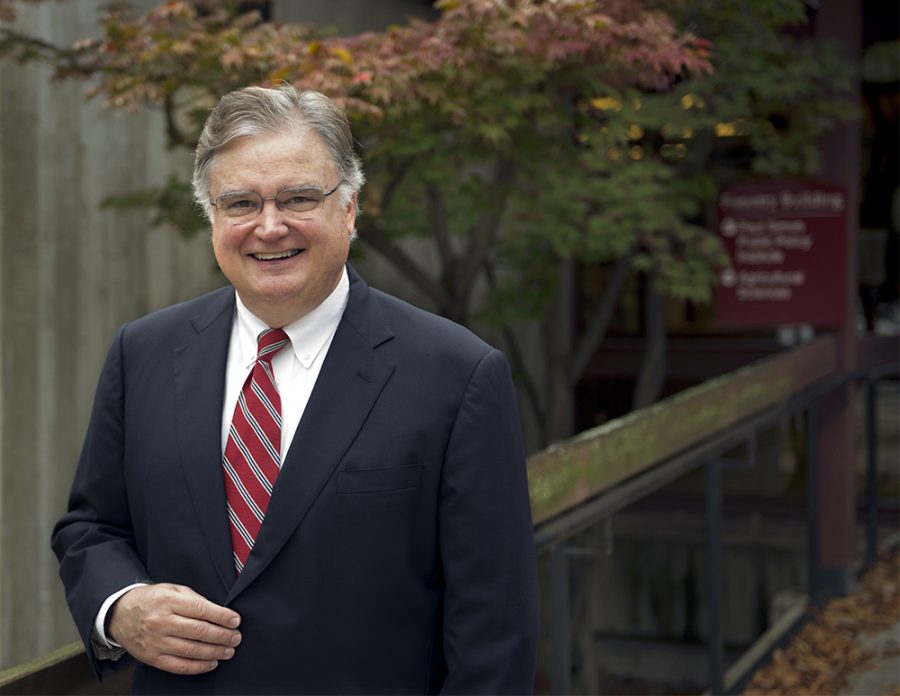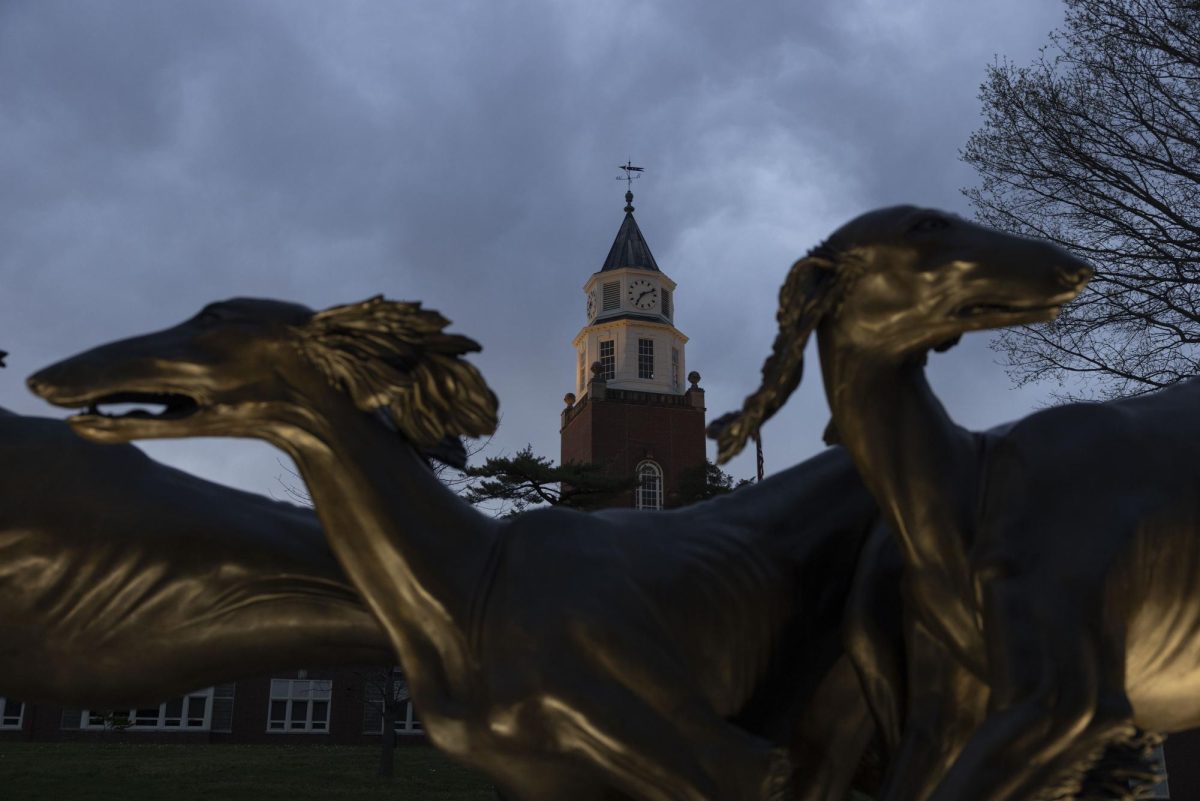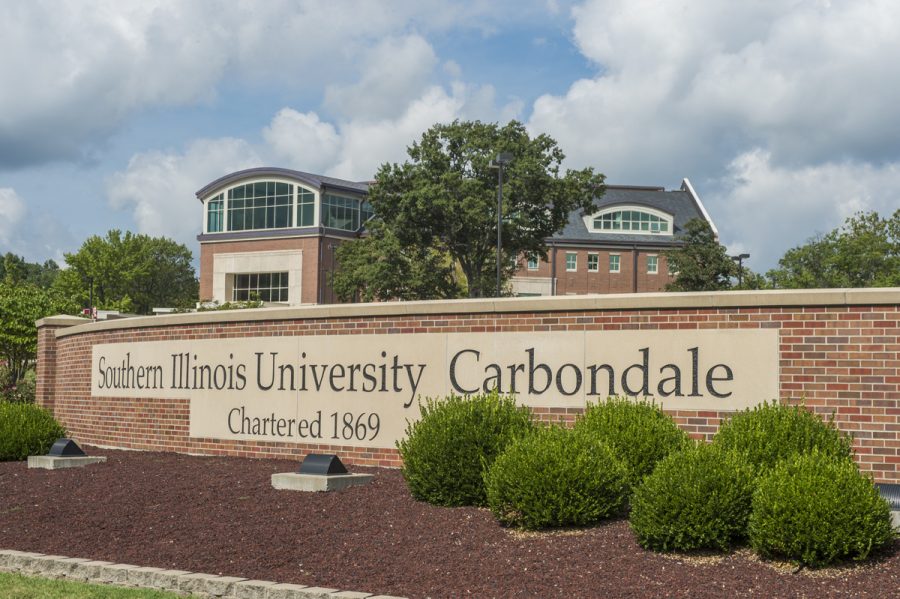Paul Simon Institute director and political reporting ‘legend’ retires from SIU
October 27, 2016
David Yepsen, director of the Paul Simon Public Policy Institute, is ready to begin marking items off his bucket list.
“You realize life has an end,” said Yepsen, who has served in the role since 2009. “If I’m going to get some of these things done, I better get going on them.”
The 65-year-old Iowa native is set to retire on Monday after spending seven years as director of the non-partisan public policy organization and as an instructor for the journalism school.
Advertisement
Prior to his days at the institute, Yepsen worked for 34 years as a political columnist, reporter and editor at The Des Moines Register, where he grew to national prominence reporting on the Iowa caucuses.
But a career in journalism wasn’t always in the cards for Yepsen.
Throughout high school and most of college, Yepsen said he wanted to be a politician. He remained active in student government, the debate team and spent his time outside of school volunteering for political campaigns.
But during his senior year of college, he started to feel like he wasn’t making much of a difference on the University of Iowa’s campus. That changed when a friend convinced him to apply at the student newspaper.
“You can go to student government and pass a resolution and it’s crickets,” Yepsen said. “But I realized when you write a story for the newspaper, someone will react.”
By the time Yepsen graduated from Iowa in 1972, journalism had grown on him.
After being drafted into the National Guard in 1973, Yepsen went through its basic journalism training program and learned how to do vocational skills like writing headlines and sizing photographs.
Advertisement*
He got his first full-time newspaper job as a crime reporter that year with the Davenport Times Democrat, now the Quad-City Times. Yepsen worked there for a year before moving to the Des Moines Tribune and the Des Moines Register shortly thereafter.
Once every four years, anyone who wanted to know anything about a presidential candidate came knocking on Yepsen’s door, said Carol Hunter, the news director at the Des Moines Register.
“He became an absolute legend in political reporting,” she said.
Any candidate who wanted to succeed in their presidential campaign knew they had to get to know Yepsen, said Hunter, an editor who worked with Yepsen in his later years at the news organization.
Hunter, whose office neighbored Yepsen’s, recalled hearing him speak on the phone with presidential candidates and other nationally known figures. Listening to him conduct interviews taught her how to ask smarter questions, she said.
“He was of an era of journalists that really learned to stand their ground and ask tough questions on behalf of readers,” Hunter said. “He did it not to be a jerk, but to try to get to the truth.”
Delio Calzolari, who has been associate director at the Paul Simon Institute since 2013, knew of Yepsen even before formally meeting him.
Calzolari, a staffer on President Barack Obama’s campaign during the 2007 Iowa caucus, said Yepsen’s opinion had the power to shift the fate of the future president.
“We woke up every morning to wait and see what David Yepsen would write about our guy,” he said.
In his role as director, Yepsen focused a great deal on guiding students and encouraging their political involvement, said John Jackson, a visiting political science professor at the university.
Jackson said with Yepsen at its helm, the institute made public policy opinion polling results available to students for thesis and dissertation work — information which otherwise would have would have required a grant to obtain.
Yepsen was also instrumental in the implementation of speaker series events at the institute. These events invite policy experts and advocates to campus to discuss issues with students informally.
Jackson said the university has hosted speakers that wouldn’t have been secured without Yepsen’s connections, such as Tom Vilsack, the U.S. Secretary of Agriculture, who came to campus last spring.
It’s important to get young people educated about the purpose of politics, which is to serve the good of the people, Yepsen said.
He said solving the fiscal problems in Illinois should start with solving ethical problems and restoring public trust in the government.
“The cure for the ethics problem in this state is akin to the cure for the smoking problem this country had,” Yepsen said. “It has to start with kids to change the culture.”
SIU has also received national prominence because of Yepsen’s presence on campus, Jackson said.
Yepsen has been a gift to the institute and the university, Calzolari said.
“I know for years I’m going to be talking about working with David Yepsen,” he said.
Yepsen said he made it a point to encourage aspiring reporters to focus on political coverage because political reporting makes the biggest difference.
“It isn’t a game,” he said. “It has serious consequences.”
Yepsen said this makes journalism stressful and addictive.
“The whole world is watching — your stuff gets critiqued and criticized constantly,” he said. “That was exhilarating.”
But out of all the roles Yepsen filled throughout his career, he said being a teacher was the most rewarding. The most gratifying moments, he said, were when he could see the lightbulb go off in the classroom, and when students would come back to campus and say his class helped them get a job.
“That’s your real paycheck,” he said.
Though Yepsen will miss the institute and working with SIU students, he said he’s looking forward to spending time with his wife, working on his writing and traveling the world.
He also has shelves and shelves of books to work through.
“The secret is to become a diverse person, and I still don’t feel like I’m broad enough,” Yepsen said. “I’ve got a lot of reading to do.”
Staff writer Marnie Leonard can be reached at mleonard@dailyegyptian.com or on Twitter @marsuzleo.
To stay up to date with all your SIU news, follow the Daily Egyptian on Facebook and Twitter.
Advertisement










